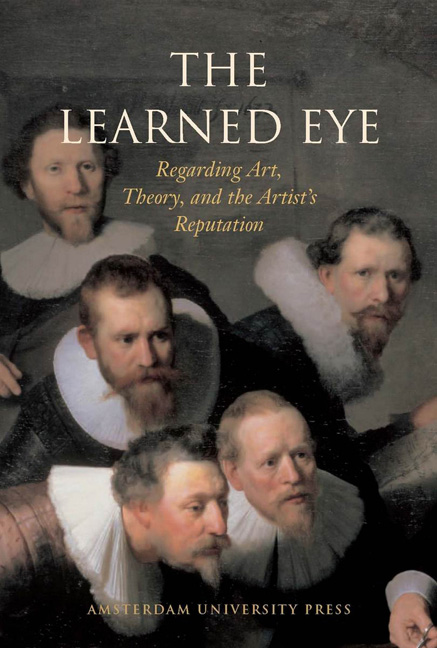‘The Painter he findes at his Easill at worke’
Published online by Cambridge University Press: 25 January 2021
Summary
Ernst and I first met in spring 1965. In the woodlands of Friesland a ‘Romantic Week’ had been organised by way of farewell to Henk Schulte Nordholt from his admiring students. Their professor was leaving for Rome and found it important to recount once again his beloved stories about Herzensergiessungen eines kunstliebenden Klosterbruders. To tell about Novalis and Caspar David Friedrich, about Arnold Böcklin and Jakob Burckhardt. So in the daytime we attended lectures and went for walks. In the evening we would listen together to such delights as Janet Baker singing arias from Berlioz. At that time there was nowhere in the art-historical world of the Netherlands where you could find such topics on the romantic period being considered. This gave us the fine feeling of being the chosen few. Ernst and his girlfriend had contrived to be invited to join this exclusive company although they didn't know any of our circle. Why had these strangers from Amsterdam come tagging along? Henk explained somewhat awkwardly, ‘They wanted to come so badly’. We soon realised how true this was. And to our great surprise it turned out that Ernst was extremely knowledgeable about the painters whom we had believed to be our sole prerogative; we thought we held the exclusive Dutch rights on them, but no. More importantly, Ernst spoke about German Romanticism with a passionate intensity, which immediately ensured him a place in the group.
Henk Schulte Nordholt seized the opportunity during those days in Friesland to recount yet once again the story of the painter and the landscape. Believe it or not, we listened hanging on his every word, although we were hearing it for the umpteenth time; could that man tell a story! In his Letters from Italy, which was published shortly before his death, we find the account once again.
‘I’d like to tell you another story that you may well recall because I’ve often recounted it. This time the artist is anonymous; all we know is that he had a friend called Norgate, who some time in the seventeenth century made a trip through the Ardennes. The account is curious and incomplete. So, our traveller comes home from his wanderings, he tells us, full of enthusiasm.
- Type
- Chapter
- Information
- The Learned EyeRegarding Art, Theory, and the Artist’s Reputation, pp. 206 - 213Publisher: Amsterdam University PressPrint publication year: 2005



